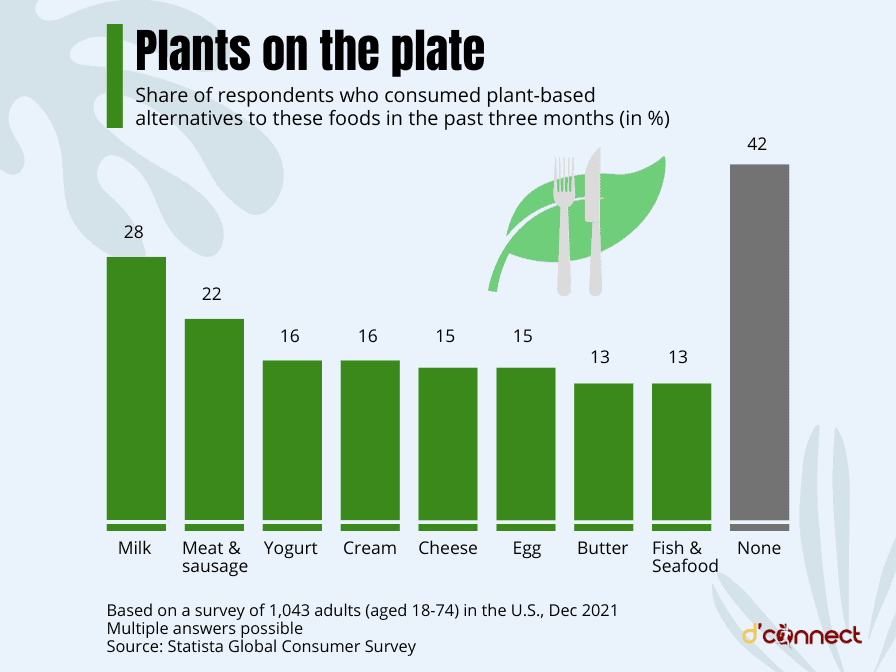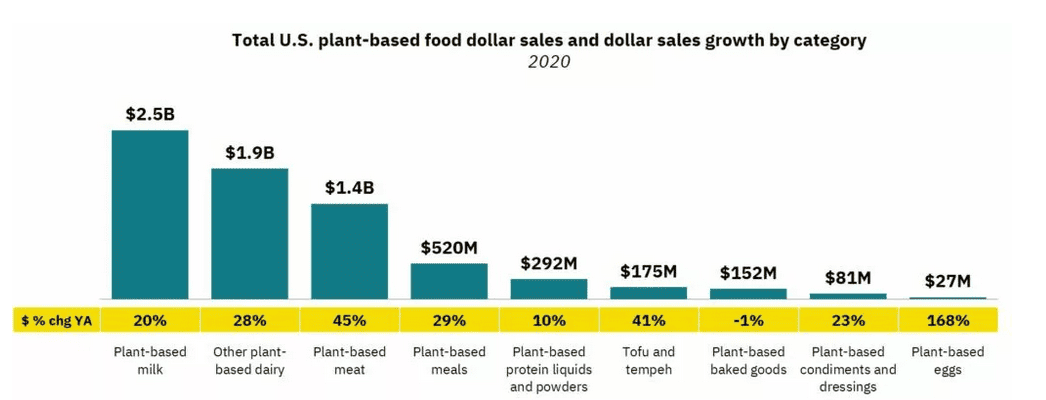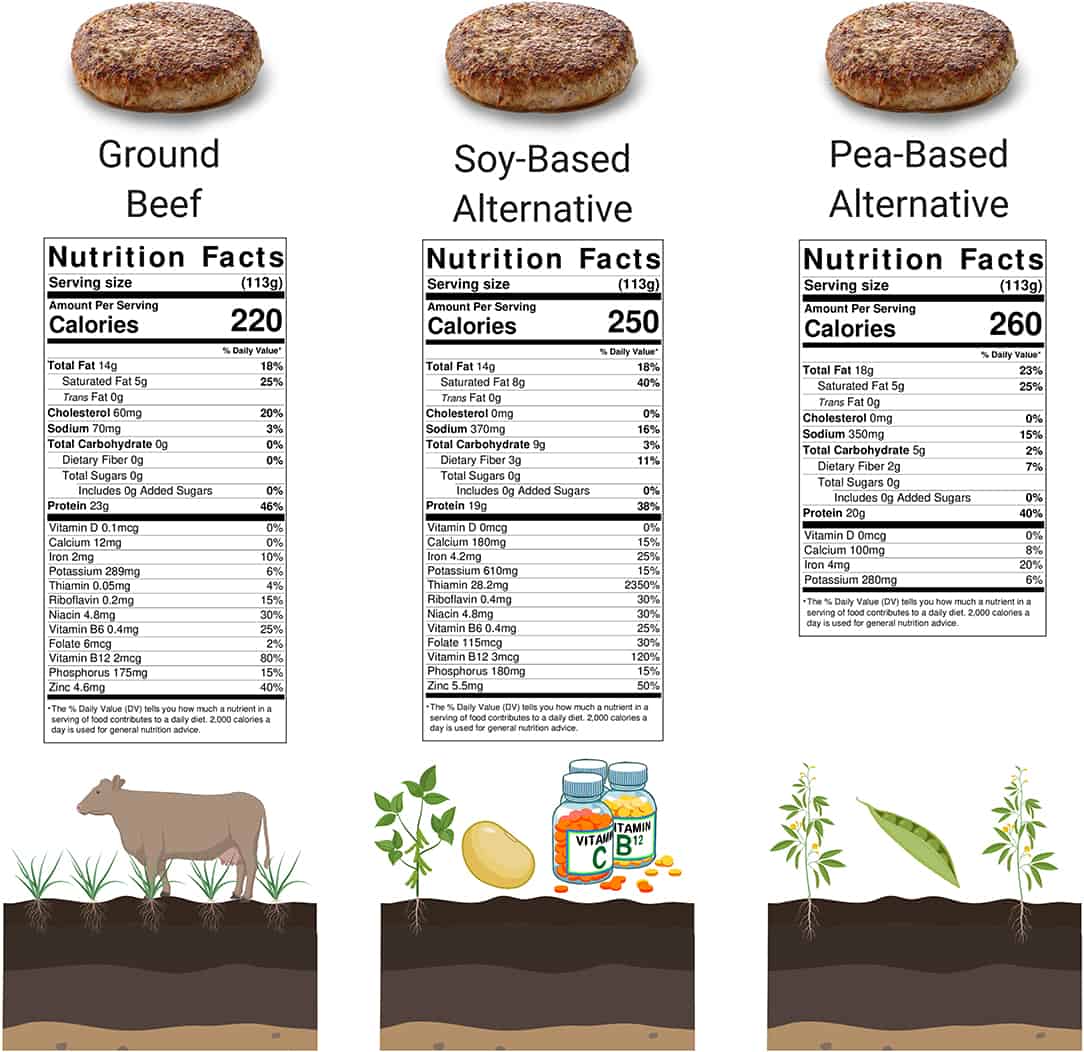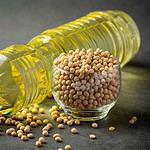
Stephanie Glass
(BFoodTech, DipBusL7, CHLC, MBP)
The term “plant-based” can be somewhat confusing since it is spoken in terms of diet and products. However, they mean different things.
Also, to decide if plant-based products are something that we should include in our diet, we first need to understand how they’re made.
Most importantly, we need to know and be aware of all the ingredients.
Plant-based diets and plant-based products — is there a difference?
Plant-based products have been in the spotlight for the last few years and we’ve all come across them, whether we are vegan, vegetarian, flexitarian or anything in between.
RELATED — Flexitarian Diet: Eat like your life depends on it (because it does)
A plant-based diet consists mainly of plant-derived foods that have gone through minimal processing (fruit, vegetables, whole grains, nuts, seeds, legumes). But it is not restrictive to animal products as long as these make up a small proportion of the diet.
The emphasis in a plant-based diet is on:
- wholeness of the ingredients
- reducing the amount of processing aids (i.e., eating clean products)
- reducing the amount of additives[1]
RELATED — 5 Most Common Food Additives in our Food (and should we avoid them)? (Part 1)
On the other hand, a plant-based product consists of plant ingredients and has no animal derived ingredients.

The regulations around plant-based products vary in different countries and across certifying bodies, allowing for different percentages of additives in the final product.
Plant-based products can contain 5-10% of additives
What is driving the increase in demand for plant-based products?
This switch in food choices comes as a result of greater awareness in the areas of:
- Environment — The carbon dioxide footprint derived from animal products is higher than that of plant products.
- Ethics — Animal welfare.
- Sustainability — with a growing population, plant-based products are a way of meeting the future’s nutritional needs.
- Health — plant rich diets decrease inflammation with the higher intake of fibre and this translates to a lower risk of diseases.
RELATED — The Vegan Diet and Lifestyle: Benefits, Risks and Meal Plans
New Zealand is the fourth leading country globally that has increased its interest in vegetarianism between 2004 and 2022, and 34% of New Zealanders have reduced their meat consumption.[2,3]
Globally, the plant-based meat alternative industry has grown 200% since 2020 and plant-based milk has 15% of the sales.
What are plant-based products?
There are several types of plant-based products and these can be categorised by their use:
- animal ingredient substitutions
- plant-based alternatives
- plant-based adaptations
- natural plant-based products
Animal ingredient substitutions
These plant-based products serve as an alternative to meat, eggs, seafood and dairy.
As an example, plant-based chicken made of pea protein or gluten, nut or grain milk (oat, almond, soy) or textured soy mince. These products are meant to resemble the animal’s product flavour, texture and use.
Brands like Impossible Meat and Beyond Meat have created products that mimic meat.
Plant-based alternatives
These products are designed to be a plant variation of a specific food and are meant to have a different flavour and texture.
The shape and name might resemble the animal product, but it does not seek to be a close substitute.
Some examples are bean burgers and veggie sausages that do not look like meat, as opposed to the animal product substitutions.
Plant-based adaptations
The products that usually have animal derived ingredients can be replaced by plant-based ingredients to create a plant-based variation.
For example, plant-based desserts or ready made meals like pasta, soups and dips.
Natural plant-based products
These are products that were originally plant-based, but now are labelled as such because alternatives with animal products in them are in the market too. For example falafels, hummus, veggie dumplings or even wine.

Each category has different intended uses, whereas some are designed to mimic animal-derived products, others seek to be a plant-based variety with its own texture and flavour.
Plant-based protein sources
When it comes to selecting a plant-based alternative, it is only natural to look at the protein content of these products. However, plant proteins don’t have the same amino acid profiles and bioavailability as the animal protein sources.
Currently, as a replacement for animal protein, the food industry uses:
- soy protein
- wheat gluten protein
- oats and rice protein
- legume protein
- nuts and seed protein
- mycoprotein
- pseudo-cereal protein
We have an entire article on this topic, and you can find it here — Alternative to meat: Unprocessed plant-based protein sources.
Carbohydrates in plant-based products
Carbohydrates are a macronutrient that is made of different types of sugars linked together.
Carbohydrates can be complex and simple, soluble and insoluble, digestible and indigestible, slow or fast release, and others.
In the food industry, the most commonly found source of carbohydrates in plant-based products are:
- naturally occurring starch
- added starch
- dietary fibre
If you would like to know more on this topic, we suggest reading Carbohydrates in plant-based products: Are they natural or processed?
Sugar in plant-based products
Sugar is a cheap ingredient and is excessively used in processed foods and plant-based products.
It’s usually added for flavour enhancing, extending shelf life, browning, texture and so on.
Sources of sugar are:
- cane sugar (has different names, such as white, brown, raw, icing, caster, invert and demerara sugar)
- fruit (fruit concentrates or juices)
- vegetables (sweet potatoes, pumpkin, beetroot and corn syrup)
- other sugar-based ingredients (agave, maple syrups, honey and coconut sugar)
Since sugar is today present in a large majority of processed foods, we created another article on this topic — Sugar in plant-based products: Are we eating processed or natural sugar?
Added fats in plant-based products
Plant-based meat alternatives don’t usually meet the fat content that animal products have, which is why different types of oils are added.
Unfortunately, most oils used in processed plant-based foods are extracted mechanically or chemically, from cheap sources such as:
- soybean
- sunflower
- canola
- corn
- cottonseed oils
If you would like to know more, we have an article on this topic — Fats in plant-based products: Refined vegetable oils or Cold-pressed oils?
Food fortification
Food fortification means adding specific nutrients to products that naturally don’t have them.
Essential micronutrients are important for our health and to have them all present in a plant-based diet can be a challenge, especially since most micronutrients are present in animal products only.

Source: Kronberg, S. Plant-Based Meats, Human Health, and Climate Change. (2020)
This is why the food industry fortifies foods and tries to make plant-based products a true alternative to animal products. Below are some of the most common food fortifications.
Vitamin B12 fortification
Vitamin B12 is only found in animal products and is essential for red blood cell functioning and the nervous system.
Flour and breakfast cereals have been fortified with vitamin B12 for a long time and with the rise of plant-based diets, some processed plant-based products have also been fortified.[4]
Vitamin D fortification
Vitamin D is a fat-soluble vitamin that is essential for calcium absorption.
Humans can synthesise vitamin D by exposing themselves to sunlight, however there is a wide deficiency of vitamin D in most diets.
Mushrooms are the only non-animal source of vitamin D
Some plant-based vitamin D fortified products are milk alternatives and vegetable fat spreads.
RELATED — Vitamin D: The sunshine hormone for stronger bones
Iron fortification
Iron is normally associated with red meats, but there are plenty of plants that are rich in iron, including:
- legumes
- nuts
- seeds
- figs
- apricots
- kale
Some meat alternatives and plant-based milks are fortified with iron when their ingredients are deficient in it.
Calcium fortification
Calcium is also strongly associated with animal products, specifically dairy, however there are natural plant-based sources that are relatively rich in calcium like:
- almonds
- sesame seeds
- soy products
- leafy greens
Plant-based milk and dairy products are usually fortified with calcium to make them comparable to its animal variants.
Omega-3 fortification
Omega-3 is an essential fatty acid that is significant for brain health. Out of the three types of omega-3s (ALA, EPA and DHA), EPA and DHA are the ones that our brain needs.
RELATED — Diet and the Brain: Fats
Oily plants like chia, hemp and flax seeds are a source of ALA, which the body converts in a very low proportion (1-5%) to EPA and DHA.
To make sure that the right amounts of EPA and DHA are consumed, plant-based diets must be supplemented with other sources, which may be algae-based or fortified foods.
Omega-3s are very sensitive molecules that are easily oxidised with air, heat and light and that limits the fortification efficiency. Some plant-based dairy products are fortified with omega-3.
Related Questions
1. Are plant-based products eco-friendly?
Plant-based products are more environmentally friendly compared to animal products.
Plant crops require less water, time, energy and land surface area than animal farms. Also, plant protein products are usually more shelf life stable as they can be either dried or processed or both and this reduces food waste.
2. Is starch a plant-based carbohydrate?
Starch is a natural occurring carbohydrate in plants.
Plants store their energy in large molecules made of glucose units. Animals, on the other hand, store their energy as glycogen and therefore starch can only be found in plants.
3. Is plant-based products highly processed?
The original concept of plant-based diets revolves around minimal processing, using whole ingredients and with a limited amount of additives.
RELATED — What are Food Additives and why are they in our food?
However, with the large increase in plant-based products demand, the industry has shifted and there are some highly processed plant-based food products in the market.
Generally, the larger the ingredient list in a food product and the more homogenised the product looks, the greater the level of processing.
If you are interested in more similar topics, you’ll find them in The Future of our Food section.
Stephanie is a qualified Food Technologist, Certified Holistic Life & Nutrition Coach and Mind-Body Practitioner based in New Zealand. She has experience in R&D, Food Safety and Quality Assurance.
Stephanie’s passion for health and wellbeing led her to study the connection between nutrition and food processing and has developed a deep understanding of nutrient quality and ingredients. She additionally immersed herself in studying the relationship between food and emotions, disease and mental health and believes in sharing her knowledge with people so they can make conscious decisions about their food choices and eating behaviors.
Stephanie’s personal journey has now taken her to guide people to reconnect to their purpose and lead meaningful lives, by integrating practices that combine mental, physical and spiritual health. She also delivers stress management and mindfulness workshops in workplaces. You can find out more about Stephanie here.
References
(1) Kent, G., Kehoe, L., Flynn, A., & Walton, J. (2021). Plant-based diets: A Review of the Definitions and Nutritional Role in the Adult Diet. Proceedings of the Nutrition Society, 81(1), 1–13. https://doi.org/10.1017/s0029665121003839
(2) Google Trends. (n.d.). Google Trends.
(3) Tuesday, October 2019, 29, & Frontier, 9:15 am P. R. F. (n.d.). Research reveals the rise of plant-based eating in NZ | Scoop News. Www.scoop.co.nz. https://www.scoop.co.nz/stories/AK1910/S00672/research-reveals-the-rise-of-plant-based-eating-in-nz.htm
(4) White, N. D. (2022). Vitamin B12 and Plant-Predominant Diets. American Journal of Lifestyle Medicine, 155982762210761.






